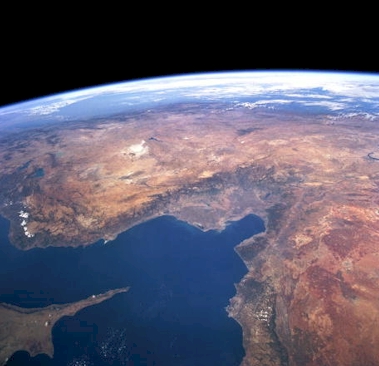 |
|
|
November 20.
"In
Iraq I was living in a car for three weeks, literally living in car. We ran
out of food and fuel: I became an expert on finding out where gas stations
used to be, and go into the ground, break into the tanks and siphon the
gasoline out."
RÆSON
has met Keith Richburg, Washington Post's Paris bureau chief.
He has been a
foreign correspondent for almost two decades. From 1991 to 1994, he was one of
the reporters who drew the world’s attention to the catastrophes in Somalia
and Rwanda. Based on his experiences there, he published in 1997 a very
well-written, honest and provocative book about his experiences in Africa as a
black western reporter. After leaving Africa, Richburg has
been stationed in Hong Kong, Bangkok and Paris, and has reported from the East
Timor secession as well as from the wars in Afghanistan and Iraq.
About the Americans' problems in Iraq he says:
“To say
that this is outsiders coming in, I think, is complete bullshit. They never
defeated the Iraqi army. It appears that, in Washington, they never had a game
plan for what would happen if they didn’t fight us. If they let us come in to
Baghdad and then turn it into a guerilla war. [...]
Iraq was never a democracy, so
what are we trying to do here? That was the problem in Somalia: we went in, we
fed people, we stopped the famine - and then some said: "let's try to build
Somalia into some model of democracy in Africa". But it never works."
Press Release
| Article
|
 ”Don't
call me a war correspondent though: I'm just a reporter.”
RÆSON has met Washington Post’s Paris-chief, Keith Richburg, who
takes us from Detroit to the Hindu Kush, and from the Philippines
to Iraq. The interview is published in Danish and English
both.
Portrætfoto: Francesca
Luk ”Don't
call me a war correspondent though: I'm just a reporter.”
RÆSON has met Washington Post’s Paris-chief, Keith Richburg, who
takes us from Detroit to the Hindu Kush, and from the Philippines
to Iraq. The interview is published in Danish and English
both.
Portrætfoto: Francesca
Luk |
|
In 1993, he covered the famine in
Somalia: "I took my own photographs, and I was constantly getting calls from
the office saying: "Ew, did you have to send this stick-finger boy that's half
dead lying on the ground?" And I said: "Yeah, that's the front page picture,
put it in there!" [...] That's the job of the journalist: to get beyond the
clinical nature of war that people would like it to be, and show you that
there are real people involved, real people getting killed."
|
|
|
|
|
|
| |
|
|
|
|
|
 |
|
November 6th.
A “system af
transparency" from Riga in Estonia to Honolulu in Hawaii?
According
to Dr. Hamilton, 9/11 confined isolationism to the past and
transformed America. Now Europe must follow suit: with the
invocation of NATO’s Article V – the
'musketeer-oath'
- a ‘trans-atlantic homeland’ is called into existence.
In September, Dr.
Daniel S. Hamilton - who is Professor at Johns Hopkins University
and Director of the Center for Transatlantic Relations – visited
Copenhagen to take part in the conference on “Homeland Security”.
RÆSON has spoken to Dr. Hamilton from Washington, in an extensive
interview about the political landscape on the two sides of
Atlantic after the arrival of what he terms “catastrophic
terrorism”.
Dr. Hamilton, who
worked for the Clinton administration, thinks that George W. Bush
has made significant mistakes in underestimating the significance
of America’s allies in the War and Terror. And he says: “the
post-Iraq-war-situation has gone very badly for the
Administration. And it has been clear that having the Pentagon in
charge of this has been a mistake (of)() the greatest significance
- and that they have seemed to be incapable of planning the
peace.”
Presse |
Interview
Press
|
Interview
(English) |
|
George W. Bush holds a speech for the
employees at the Department of Homeland Security,
Washington D.C. on October 1st 2003
(White House photo by Tina Hager) |
| |
 |
“Territorial
defense in the Cold War sense should give way to a new common conception
of territorial protection against sporadic attacks - or surprise attacks
- by terrorists using weapons of mass destruction. Those attacks could
happen today, in Europe. We have clear evidence that such attacks have
already been planned - they simply were stopped. The idea that Europe is
not a target is simply wrong.” |
The article is published in Danish and
English both. |
|
|
|
|
 |
| |
|
The Parties agree that an armed attack
against one or more of them in Europe or North America
shall be considered an attack against them all and
consequently they agree that, if such an armed attack
occurs, each of them, in exercise of the right of
individual or collective self-defence recognised by
Article 51 of the Charter of the United Nations,
will assist the Party or Parties so attacked by taking
forthwith, individually and in concert with the other
Parties, such action as it deems necessary, including
the use of armed force, to restore and maintain the
security of the North Atlantic area.
Any such armed attack and all measures
taken as a result thereof shall immediately be
reported to the Security Council. Such measures shall
be terminated when the Security Council has taken the
measures necessary to restore and maintain
international peace and security. |
| |
The interview forms the inspiration for a a
series of articles named for Article 5 of the
NATO treaty: "A transatlantic Homeland"?
|
| |
| |
|
For the
entire treaty, visit
NATOs website |
| |
|
|
|
|
|
|
|
|
RÆSON is a Danish magazine
devoted to politics of significance. Its primary
medium is this website, which is financed by advertising, but
in addition we produce radio
shows and publish books - the first of which,
"The United States |
Europe - enemies in common?" came out in june 2003
to good reviews.
We cover to distinct themes:
International politics of
national importance and National politics of international importance
- nothing but. Whenever RÆSON publishes an interview
originally conducted in English, it will be made available
in Danish and English both.
The magazine is based on a unique panel of
distinguished Danish analysts - from politics, journalism
and a number of different academic disciplines, including no less than two former Foreign Secretaries and the
current Minister of Integration (the
panel is listed in its entirety
here). RÆSON is indispensable as an agenda-setter for the public debate; as a resource for teaching - and as reading
material for anyone interested in politics.
|
 |
|
|
| |
|
|
|
PREVIOUS ARTICLES AVAILABLE IN ENGLISH: |
|
|
|
|
|
LATEST FRONTPAGES |
Holm (31.okt),
Rovsing (24.okt),
Engell (22.okt),
Nikolaj Petersen (16.okt),
Friis (14.okt),
Vind Jensen (11.okt),
Pertou Mach (10.okt),
Goldschmidt (1.okt),
Veto #7 (25.sep),
Krarup (25.sep),
Schultz Jørgensen (22.sep),
Nielsen (19.sep),
Holm (17.sep),
Dalgaard-Nielsen (11.sep),
Friis Bach (10.sep),
Engelbreth (9.sep),
Bjerre-Poulsen
(27.aug),
Lykketoft (20.aug),
Tamm (13.aug),
Ehrenreich (6.aug) |
|
|
|
RÆSON is a
current affairs magazine, independent of political parties,
institutions and organisations. Its basis is a unique panel
featuring leading Danish politicians, commentators and
academics: |
|
Lars
Erslev Andersen
Svend Auken
Hans Branner
Gregers Dirckinck-Holmfeld
Jørgen Dragsdahl
Christian Friis Bach
Lykke Friis
Connie Hedegaard
Niels Helveg-Petersen
Ulla Holm
Erik Hoffmeyer
Bertel Haarder
Lars Bo Kaspersen
Morten Kelstrup
Peter Kuhlman
Peter Kurrild-Klitgaard
Mogens Lykketoft |
Martin Marcussen
Hans Mouritzen
Bjørn Møller
Gorm Rye Olsen
Nikolaj Petersen
Henrik Qvortrup
Mikkel Vedby Rasmussen
Sten Rynning
Tøger Seidenfaden
Mona Sheikh
Hans Skov Christensen
Ditlev Tamm
Claus Vastrup
Ole Wæver
Clemens Stubbe Østergaard
Uffe Østergaard |
|
|
|
C
o n t a c t
R Æ S O N
MELLEMFORTS ALLÉ 4, 3.TH.,
2300 COPENHAGEN S, DENMARK
TLF. (+45) 32 97 97 07
|
|
|
|
|
|
PHOTO
CREDITS:
LIBRARY OF
CONGRESS, FN, DEP. OF DEFENSE, CLINTON PRESIDENTIAL CENTER, FOLKETINGET, COPRI, NATO, NASA, THE
WALT DISNEY COMPANY, THE NOSTALGIA FACTORY
http://www.nostalgia.com,
The Nixon Foundation,
20TH CENTURY FOX, STARWARS.COM, EU2002 |
|
|
|



